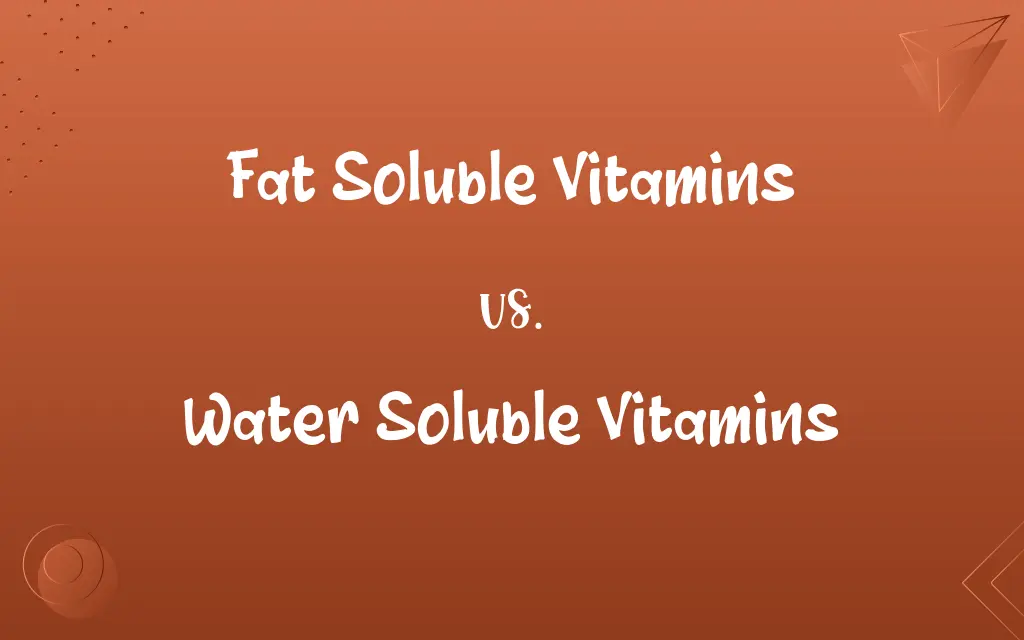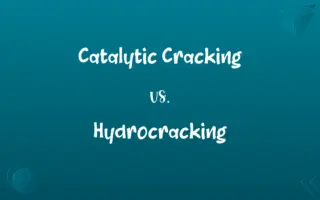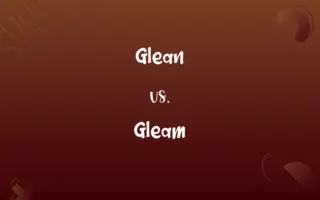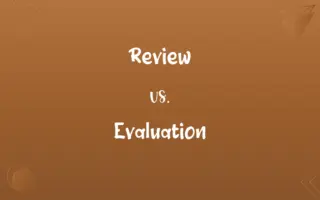Fat Soluble Vitamins vs. Water Soluble Vitamins: Know the Difference

By Shumaila Saeed || Updated on December 25, 2023
Fat Soluble Vitamins (A, D, E, K) are stored in the body's fatty tissues, while Water Soluble Vitamins (B-complex, C) dissolve in water and are not stored in the body.

Key Differences
Fat Soluble Vitamins, including vitamins A, D, E, and K, are absorbed along with fats in the diet and can be stored in the body's fatty tissue and liver. These vitamins are typically utilized as needed. In contrast, Water Soluble Vitamins, comprising the B-complex vitamins and vitamin C, dissolve in water and are not stored in the body, requiring regular replenishment through diet or supplements.
Shumaila Saeed
Dec 09, 2023
The absorption process of Fat Soluble Vitamins is dependent on the body's ability to absorb dietary fat. People with fat malabsorption disorders may have difficulty absorbing these vitamins. Conversely, Water Soluble Vitamins are easily absorbed by the body and any excess is excreted in urine, making toxicity less common compared to fat-soluble vitamins.
Shumaila Saeed
Dec 09, 2023
Fat Soluble Vitamins play crucial roles in various bodily functions, such as vision (vitamin A), bone health (vitamin D), antioxidant activity (vitamin E), and blood clotting (vitamin K). Water Soluble Vitamins are vital for energy production (B vitamins), DNA synthesis, and maintaining immune function (vitamin C).
Shumaila Saeed
Dec 09, 2023
Overconsumption of Fat Soluble Vitamins can lead to toxicity since they are stored in the body for longer periods. Symptoms of toxicity vary depending on the vitamin. In contrast, Water Soluble Vitamin toxicity is rare due to their excretion in urine, although it can occur with extremely high doses, particularly with vitamin B6 and vitamin C.
Shumaila Saeed
Dec 09, 2023
Dietary sources of Fat Soluble Vitamins include fatty fish, dairy products, leafy green vegetables, and nuts. Water Soluble Vitamins are found in a wide range of foods, including fruits, vegetables, grains, and meat. Both types are crucial for maintaining health, but they require different dietary strategies for adequate consumption.
Shumaila Saeed
Dec 09, 2023
ADVERTISEMENT
Comparison Chart
Key Functions
Vision, bone health, blood clotting
Energy production, immune function
Shumaila Saeed
Dec 09, 2023
ADVERTISEMENT
Fat Soluble Vitamins and Water Soluble Vitamins Definitions
Fat Soluble Vitamins
Fat Soluble Vitamins are stored in body fat and liver.
Vitamin D, a Fat Soluble Vitamin, is important for bone health.
Shumaila Saeed
Dec 01, 2023
Water Soluble Vitamins
These vitamins are easily absorbed and excreted.
Excess Water Soluble Vitamins, like vitamin B12, are excreted in urine.
Shumaila Saeed
Dec 01, 2023
Fat Soluble Vitamins
Excess intake can lead to toxicity.
Overconsumption of Vitamin E, a Fat Soluble Vitamin, can be harmful.
Shumaila Saeed
Dec 01, 2023
Water Soluble Vitamins
Daily intake is necessary as they are not stored.
Regular intake of vitamin C, a Water Soluble Vitamin, is important for immune health.
Shumaila Saeed
Dec 01, 2023
Fat Soluble Vitamins
They are absorbed with dietary fats.
Fat Soluble Vitamins are best absorbed with a meal containing fats.
Shumaila Saeed
Dec 01, 2023
ADVERTISEMENT
Water Soluble Vitamins
They are essential for energy production and immunity.
Vitamin B6, a Water Soluble Vitamin, is important for energy release.
Shumaila Saeed
Dec 01, 2023
Fat Soluble Vitamins
These vitamins include A, D, E, and K.
Vitamin A, a Fat Soluble Vitamin, is essential for good vision.
Shumaila Saeed
Dec 01, 2023
Water Soluble Vitamins
Water Soluble Vitamins dissolve in water and are not stored in the body.
Vitamin C, a Water Soluble Vitamin, needs to be consumed regularly.
Shumaila Saeed
Dec 01, 2023
Fat Soluble Vitamins
They are important for various bodily functions.
Vitamin K, a Fat Soluble Vitamin, is vital for blood clotting.
Shumaila Saeed
Dec 01, 2023
Water Soluble Vitamins
They include the B-complex vitamins and vitamin C.
B vitamins, Water Soluble Vitamins, are crucial for metabolic processes.
Shumaila Saeed
Dec 01, 2023
Repeatedly Asked Queries
Do Water Soluble Vitamins need regular intake?
Yes, they need to be consumed regularly.
Shumaila Saeed
Dec 09, 2023
Are Fat Soluble Vitamins absorbed with fats?
Yes, they are best absorbed with dietary fats.
Shumaila Saeed
Dec 09, 2023
What are Water Soluble Vitamins?
B-complex vitamins and vitamin C, not stored in the body.
Shumaila Saeed
Dec 09, 2023
Is Vitamin C a Water Soluble Vitamin?
Yes, and it's important for immune function.
Shumaila Saeed
Dec 09, 2023
What's a key function of Vitamin D?
Vitamin D, a Fat Soluble Vitamin, is crucial for bone health.
Shumaila Saeed
Dec 09, 2023
Where can I find Vitamin A?
In foods like carrots and dairy, it's a Fat Soluble Vitamin.
Shumaila Saeed
Dec 09, 2023
What are Fat Soluble Vitamins?
Vitamins A, D, E, and K, stored in body fat.
Shumaila Saeed
Dec 09, 2023
How often should I take Fat Soluble Vitamins?
They don't need daily intake due to storage in body fat.
Shumaila Saeed
Dec 09, 2023
Can I overdose on Water Soluble Vitamins?
It's rare, but possible with extremely high doses.
Shumaila Saeed
Dec 09, 2023
Are B vitamins Water Soluble?
Yes, they are part of the Water Soluble Vitamin group.
Shumaila Saeed
Dec 09, 2023
Do Water Soluble Vitamins help with energy?
Yes, B vitamins are key for energy production.
Shumaila Saeed
Dec 09, 2023
Should Fat Soluble Vitamins be taken with food?
Yes, they're better absorbed with fats in food.
Shumaila Saeed
Dec 09, 2023
Can Water Soluble Vitamins be stored in the liver?
No, unlike Fat Soluble Vitamins, they're not stored in the body.
Shumaila Saeed
Dec 09, 2023
Are Water Soluble Vitamins good for metabolism?
Yes, especially B vitamins.
Shumaila Saeed
Dec 09, 2023
Is Vitamin C important for skin health?
Yes, as a Water Soluble Vitamin, it's vital for skin.
Shumaila Saeed
Dec 09, 2023
Are all vitamins either Fat or Water Soluble?
Yes, they fall into one of these two categories.
Shumaila Saeed
Dec 09, 2023
Can Fat Soluble Vitamins help with blood clotting?
Vitamin K, a Fat Soluble Vitamin, aids in clotting.
Shumaila Saeed
Dec 09, 2023
Share this page
Link for your blog / website
HTML
Link to share via messenger
About Author
Written by
Shumaila SaeedShumaila Saeed, an expert content creator with 6 years of experience, specializes in distilling complex topics into easily digestible comparisons, shining a light on the nuances that both inform and educate readers with clarity and accuracy.






































































